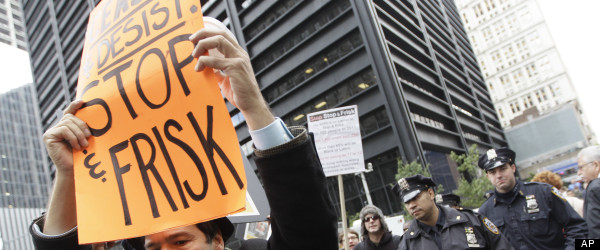
NEW YORK, June 10 (Reuters) – New York Mayor Michael Bloomberg took his defense of the police department’s “Stop and Frisk” program to one of Brooklyn’s highest crime communities on Sunday, championing the program from the pulpit of a black church in Brownsville.
Civil rights advocates, civil libertarians and a federal judge have criticized some aspects of the program as unlawful, abusive of residents’ rights and disproportionately aimed at blacks and Latinos.
Use of the stop and frisk program – in which police stop and question people they suspect of unlawful activity and frisk those they suspect of carrying a weapon – has risen dramatically during the Bloomberg administration, to 685,724 in 2011 from 160,851 in 2003. About 53 percent of those stops resulted in physical searches.
With Police Commissioner Ray Kelly sitting in the front row of the First Baptist Church of Brownsville, Bloomberg detailed a flurry of statistics he said showed the program had saved minority lives while still lowering the number of people incarcerated from a decade ago.
He also countered the racial charge by reading the names, ages and communities of 10 New Yorkers murdered in the city during the first week in June.
“All 10 were young men. All 10 were black and Hispanic,” Bloomberg said after reading the names. “Sadly, 96 percent of shooting suspects are black and Latino … I don’t have to tell you about black-on-black crime.”
But, he insisted, “compared to a decade ago – and listen to this carefully because nobody understands what we’ve really done – 30 percent fewer people are behind bars than a decade ago.”
Bloomberg also said police reforms, including better training, oversight and study of the program, had already begun to address some of the complaints about aggressive behavior by officers.
After Bloomberg left, the church’s 90-year-old pastor, Bishop A.D. Lyons, said he supports efforts to get guns off the streets, but he expressed frustration with what residents say is an unnecessarily aggressive implementation of the stop and frisk program in Brownsville.
Police have designated Brownsville as one of the city’s “Impact Zones” that are flooded with recent police academy graduates who patrol some of the most crime-ridden areas of the city.
“We have a lot of police who don’t want to be in Brownsville, and they have an attitude when they come into Brownsville and you’ve got to deal with that,” Lyons said. “They walk by you, and they won’t speak, and they have an attitude. I’ve been trying to get them to come into the sanctuary and just show up, show that we’re friends.
“I’ll agree that a lot of it is blacks carrying guns,” Lyons said. “But we’ve got to respect them, even if they are carrying guns.” (Editing by Daniel Trotta and Sandra Maler)